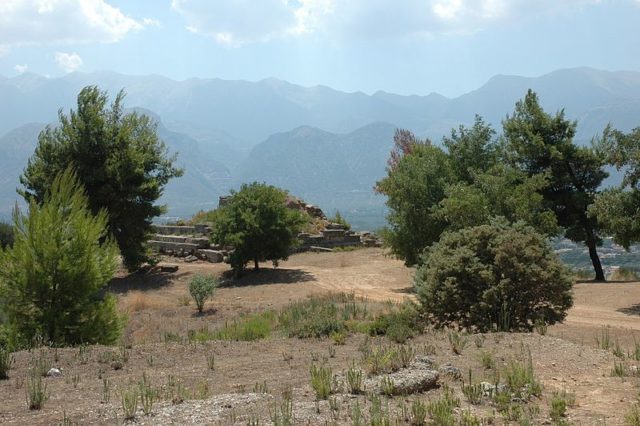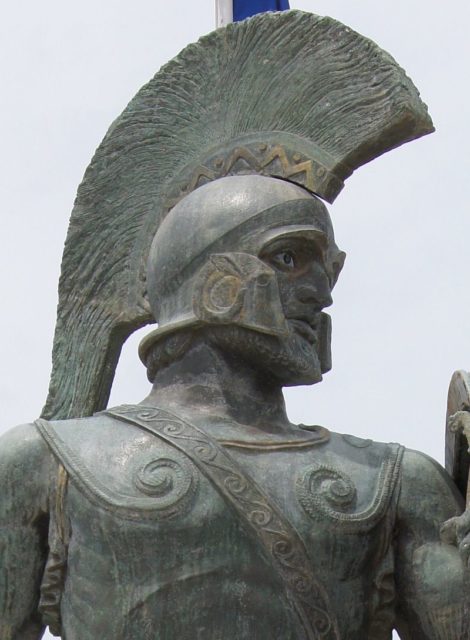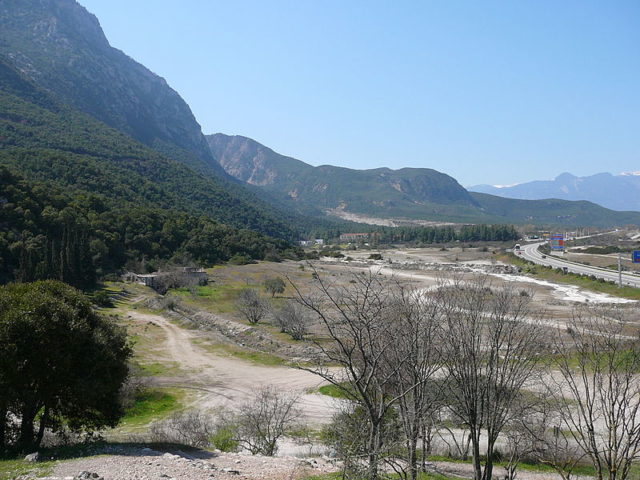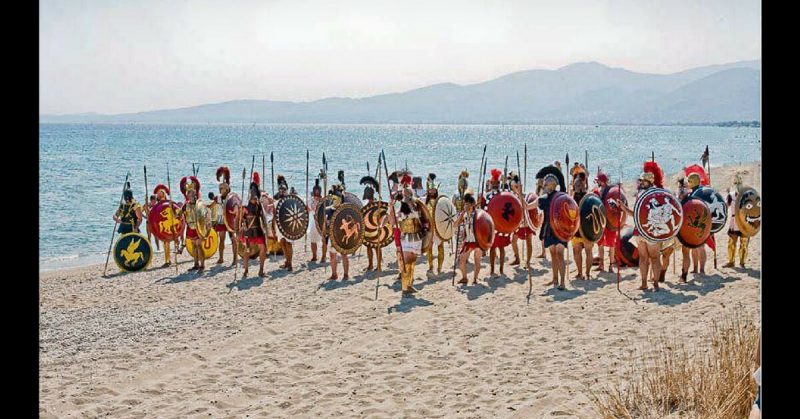Today, many individuals connect Sparta with a few movies and then dismiss the influential historical city as something of little importance. However, Sparta’s strict military code and way of life made the Spartans one of the most interesting ancient cultures in all of Europe’s history.
The Spartans and their hoplite warriors boasted a skill, strength, and stamina that is still admirable to this day, and one that most certainly grants them the honor and glory that was so important in Greek culture at the time.
1. Spartan Glory
Those who have read Homer’s great works, the Iliad and the Odyssey, are familiar with the Greek need for individual recognition and the need for heroes, as Homer reflects this greatly in his work. In this time, military prowess and politics were extremely important in Grecian culture.
As Grecian communities formed into more structured cities over time, one rose above the rest in terms of its harsh lifestyle and military single-mindedness. This was, of course, Sparta. In fact, this lifestyle and culture found in the city of Sparta helped form today’s English word of “Spartan,” meaning somewhat bare or minimalistic.

Spartan life was relatively minimalistic, with nearly every aspect of Spartan life focusing in on one thing and one thing only – militant life.
Sparta raised its famed warriors from a very early age. In fact, the Spartans even practiced a very rudimentary version of genetic manipulation, by matching the men with the most favorable traits with the women with the most favorable traits to produce what they hoped would be the perfect warrior.
Weak infants held no value, and every individual was under scrutiny, to ensure no one would prove to be the weak link in the Spartan community.
2. Early Education
Adolescent boys were taught from a young age that life was not easy. Their initial training included a lot of what we would today consider abuse. They were often denied proper nutrition and made to work much harder and longer than their young bodies could handle. Their endurance was being tested and their elders were toughening them up for their futures. Of course, a few examples from Grecian history take these experiences to an entirely new level of disturbing.
One says that the young boys in training were starved, and then a plate of cheese would be set out before them all. As the boys would scramble to get even just a morsel of food, they would be whipped for coming too close to the plate. This particular custom became something of a tourist trap for visitors, and the practice took place in a public space for all to see.
Another example involves children being rounded up into groups and told to go out and kill a slave of their choosing in the middle of the night. The bigger, stronger and smarter the slave they killed, the higher the praise they would receive. This practice was fairly common, making it a very good thing to be a weak, stupid slave in Spartan households, as it meant you would never be targeted.

3. Military Life
After this rough training, the young Spartan men would begin their formal military training, and go to live among the military. They were expected to serve there for an extended amount of time, sometimes as many as 40 or 45 years, depending on the need at the time.
Hoplites were known for the strong initial front they provided, working together as almost a single entity, attacking headfirst and acting almost like a wall of men, which was very difficult to break through. Their armor included a helmet, breastplate and leg armor, as well as a large shield. These shields increased the strength that front line had when going into battle, as it protected the front men nearly from foot to neck.
The shield was the most valued part of their armor and was often very costly to make. It was also frequently passed down among generations, from grandfather to father to son and so on. For this reason, a lot of shields boasted a family crest or seal. A popular Spartan saying also instructed soldiers to either come back with their shield intact, or to come back lying dead upon it.
The Hoplites’ main weapon a long spear, nine feet in length. This spear, paired with the large shield, made the Hoplites a foe not easily defeated. This deadly combination was given credit for some of Sparta’s victories, as other military forces of the day couldn’t even touch them.
In addition to Spears, the Hoplite warriors also had short swords in various shapes that could be used for closer contact combat, though the spears often kept this from becoming necessary.

4. Eventual Decline
The most popular tale regarding Spartan military power, though it was a loss, is the story of the 300 (which, yes, is also a movie by the same name). When the Persians were advancing on the Greeks, 300 Spartan warriors went to defend a pass, fighting for three days and giving their fellow Greeks plenty of time to prepare for the oncoming invasion. While the Spartans fought to the very last man, they were eventually overcome by the Persians as a Greek traitor led the Persians around the pass, allowing them to circle the Spartans in on both sides.
The Spartan military and culture eventually declined in the Grecian world, as the city experienced an array of defeating blows, including not only military defeats but also natural disasters, such as earthquakes, and slave rebellions.
However, later conquerors, such as Alexander the Great, did not attempt to go up against Sparta, in respect for the culture and history of the much-revered people.
